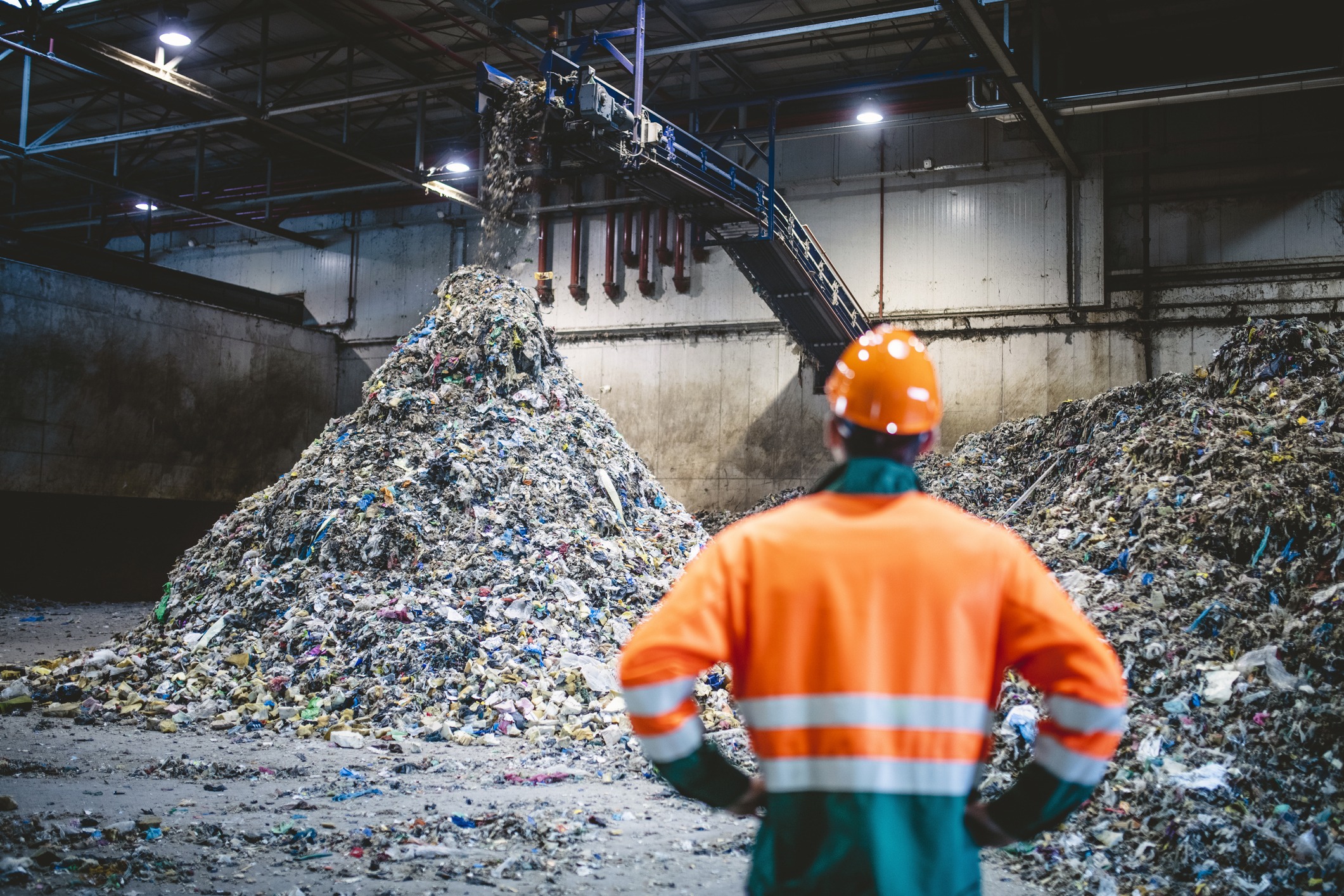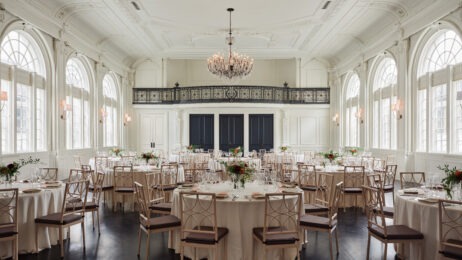UBQ Materials, developer of the world’s first bio-based thermoplastic, is helping create the first global event built from landfill waste.
In collaboration with Palram, manufacturer of thermoplastic sheets (moldable plastic, essentially), PLANETech World 2022, to be held in Tel Aviv, Israel, Sept. 21, 2022, will be the first time a trade show reduces its own construction’s carbon footprint.
“One of the main concerns when talking about sustainability is to be sure we use the most sustainable option…and we use as little waste as possible,” says Sophie Tuviahu, vice president of business development for UBQ. “And that is where UBQ comes into play. We can supply the most climate-positive kind of plastic material…that are used in event production.”
What Is UBQ?
UBQ Materials converts everyday household waste, including used diapers, cardboard, paper, food scraps, garden trimmings and plastics, into real-world usable items for use in thousands of products across multiple industries, none of which needs to be sorted before being processed. With PLANETech in particular, parts of its infrastructure will be made of Palram’s Palboard multilayered PVC panels made with UBQ’s material.
These Palram panels prevents up to 12 tons of CO2 emissions for every ton of UBQ used, according to a press release.
Read More: Advito and BCD M&E Create Emissions Calculator
Companies such as PepsiCo and Arcos Dorados, Latin America’s largest McDonald’s franchisee, are already using UBQ. Mercedes-Benz began its collaboration with the company in 2019 and features UBQ’s materials in its all-electric VISION EQXX, which, while fully functional, is still just a prototype. The car has UBQ in the structure of its body and sections of its interior, such as the headrests.
UBQ at PLANETech
In addition to hosting more than 50 speakers, PLANETech will be a temporary home to more 100 start-up companies, allowing them to showcase their technology, and UBQ will play a part in their display. Tuviahu says UBQ is cooperating with conference organizers of PLANETech to donate their materials for the construction of the start-up booths.
“Each start-up will get one [booth panel] and they can customize as they need,” Tuviahu says. “We are bringing in a blank canvas that will serve each of the start-ups to do their own customization and display their own technology and product.”
The question of where to get rid of post-event materials, like wood, plastics and signage, which often results in vast amounts of waste, is being answered by the introduction of materials such as UBQ. “These materials that are made with UBQ can be recycled again and again, to reach a level of circularity that was unknown before events such as this…with UBQ, we are opening a new possibility,” she says.
Tuviahu expressed the difficulty of balancing the desire to be sustainable without decreasing the quality of the event. “This is not an easy task when talking about graphic design as a substrate,” she says. “[The] quality of the surface, the possibilities of the color need to be there because [it’s needed] to create that ‘wow factor’ in the event that we don’t want to give up just because we want to be more sustainable. There’s always a trade-off: We want to be chic and lovely, but we also want to be environmentally conscious. That doesn’t always come hand-in-hand.”
Read More: Beyond Carbon-Neutral Hotels: Evolution of Eco-Friendly Hotels
Although it’s only conventional plastic that will be replaced at PLANETech, Tuviahu believes the opportunities for UBQ’s expansion in events are bright. “Eventually, UBQ [will be able to] replace a lot of basic materials in everyday products,” Tuviahu says. “In construction, for instance, we target concrete as the holy grail of UBQ implementation. Concrete and cement…are very unsustainable materials and we believe the implementation of UBQ, at least as an ingredient, will improve the sustainability proposition, making it less of a harmful substance.”
When the event is over, Palram will take them back to its plant in Israel for recycling, where it will await its next use. Palram, which has operations in six continents, will introduce Palboard to the wider market to those looking for a more sustainable option.
“It’s really important that people become aware of the choices of materials they [have],” Tuviahu says. “There are better choices to make. Choose your materials wisely; think of what it’s made of. There are many materials that are a better option than the ones that are currently in use. [Just] because something is natural [doesn’t] mean it’s sustainable.
“Events are an opportunity to really nurture that awareness if we want to be responsible and push sustainability to the limit. Events are not only an opportunity to meet face-to-face, but they are also an opportunity to educate and show that we can make better choices.”
UBQ, which currently only operates in Israel, will be expanding to a large-scale facility in the Netherlands, with production slated to begin during Q1 of 2023. This will mark a huge increase in UBQ’s production, as the facility in the Netherlands will have a production rate of 80,000 tons per year, as compared to the current facility’s production rate of 5,000 tons of UBQ per year.
“This will open up opportunities for more producers to implement UBQ into their products and for more sustainable products to be launched,” Tuviahu. “We are proving to the market that we are functional and we deliver on our sustainability propositions.”





